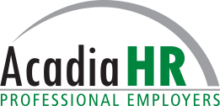America has significantly shifted the way it works since COVID-19 came into our lives. Maintaining business operations since early 2020 has required surviving companies to be creative and implement new business approaches to accommodate mandatory social distancing, work area layouts, and virtual versus in-person co-worker and customer interaction. Shouldering the brunt of adapting to keep our businesses afloat, employees at all levels have endured abrupt changes to working conditions and many continue to experience uncertainty about the future. Two years into it, we’ve come a long way, but because anxiety is still at work “at work,” let’s look at ways we can work well in the new year.
Take a Break. If your employer provides paid time off, use it! Too often, hard-charging over-achievers lose a healthy work-life balance by putting in very long hours, including nights and weekends. Having the ability to “burn the candle at both ends” can be a blessing and a curse and should be reserved for only exceptional circumstances: unforeseen customer demand, critical equipment repairs, seasonal or cyclical deliverables, etc. If you’re a business owner or policy maker at work, consider the sustainability of your workforce’s time commitment. Encourage your employees to unplug, relax, rest, and recharge. Burnout is real, and it can cost a company dearly in terms of reduced productivity, lost revenues, and, too often, employee turnover.
Treat Someone. If you’re feeling in the dumps, do something thoughtful and unexpected for someone in need. Don’t ask for anything in return. Chances are pretty good that someday another kind gesture will be passed on to another person in need. The reward will be realized in your heart, and a happy heart brightens everyone’s day.
Take Care of You. The CDC’s Workplace Health Promotion recommends employees adopt behaviors that promote stress management and mental health. They include:
- Eat healthy, well-balanced meals, exercise regularly, and get 7 to 8 hours of sleep a night.
- Take part in activities that promote stress management and relaxation, such as yoga, meditation, mindfulness, or tai chi.
- Build and nurture real-life, face-to-face social connections.
- Take the time to reflect on positive experiences and express happiness and gratitude.
- Set and work toward personal, wellness, and work-related goals and ask for help when it is needed.
Talk to Someone. If you find yourself having a rough go of things, share your troubles with someone you know; an empathetic and trustworthy confidant. They may give you great advice or they may just listen. Sometimes a sounding board is all that’s needed to gain the right perspective.
Some may seek referrals to professional counselors, psychologists, or social workers for assistance while others find the help they need through non-profits: places of worship or community/family centers.
Counseling may also be available through work. An Employee Assistance Program (EAP) is a company benefit provided by many employers to assist workers with problems that may impact their job performance or their physical, mental, or emotional well-being. The confidential service is generally provided at no cost to employees, covers personal as well as work-related problems, and may be included as a part of your company’s health plan.
As we continue to endure through this challenging pandemic that seeks to stifle American productivity and entrepreneurship, let’s be thankful that we can take actions to keep ourselves healthy as we help a strong workforce work well in the new year.
Acadia HR has been helping businesses locally and nationally since 1989 by delivering tools and resources to build efficiencies in their clients through personal, customized service. For more information on outsourcing options, please call 845.876.1987 or email sa***@******HR.com.

